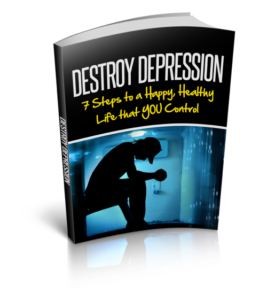We all know how good it is to feel positive emotions. Studies have found that people who spend more time feeling good are more likely to live longer and with less illness. Much of the benefit of positive emotions stems from the direct effect on the nervous system in lower levels of stress hormones, which are essential for survival in the face of danger but can be harmful long term. Feeling good also tends to result in less unhealthy coping mechanisms such as overeating, smoking, harmful drug or alcohol abuse etc.
So why do negative emotions seem so much easier to produce and are often more intense than positive emotions. Evolutionary psychology asserts that negative emotions such as fear or anger elicit changes in the body’s autonomous nervous system that are relevant to survival. The fight, flight or freeze response is automatic and prepares the body for survival in the face of danger. This was particularly relevant in the past when our ancestors faced many life-threatening situations on a regular basis. Most people today are not faced with survival challenges every day, at least not to the same degree or intensity of our ancestors. Unfortunately, our brains often can’t tell the difference between a survival situation and what is just an undesirable situation.
Robert Schrauf, an associate professor of applied linguistics and an anthropologist at Penn State suggests we have more words to express negative emotions than positive ones. Schrauf suggests that this also stems from an evolutionary standpoint. It appears we are hardwired to pay more attention to negative emotions because they keep us safe and enhance survival. Does this mean we are slaves to our emotional brains? Not necessarily. Outside of conditions like Post Traumatic Stress Disorder (PTSD) we still have some control over our emotions.
If you are experiencing a negative emotion such as sadness or fear due to an obvious external source, then it makes sense to accept your feelings as a natural response and seek support if required. The problem arises when we interpret certain life events as life threatening and allow our emotions to run wild. I have written previously (What if there is nothing wrong with you?) about how thoughts and the meaning we attach to events create our emotions. If you are experiencing negative emotions for no obvious reason, then it can be helpful to examine and challenge the thoughts you are having at the time.
The good news is that positive emotions can reduce the effects of stress on the body. According to Barbara Fredrickson there is a “undoing effect” which was observed in her research on The Value of Positive Emotions. Fredrickson suggests feeling positive emotions regularly has a “upward spiral” of continued growth and thriving. Positive emotions can also flow onto other individuals and the general community. Think about how acts of compassion and kindness have a flow on effect through the community. Feeling good not only helps the individual but also society.
Cultivating positive emotions can be achieved directly by seeking out experiences that feel good. Humour and laughter are two good examples. Yet even in the face of adversity finding meaning and appreciation for help received can cultivate love and gratitude. Like most things in life cultivating positive emotions requires a degree of conscious effort. However, research suggests that the benefits are certainly worth the effort for both your physical and mental health.
Wishing you all the best in your journey
Phil Miranda
Sources:
Study: Negative Words Dominate Language
The Value of Positive Emotions- Barbara L. Fredrickson



